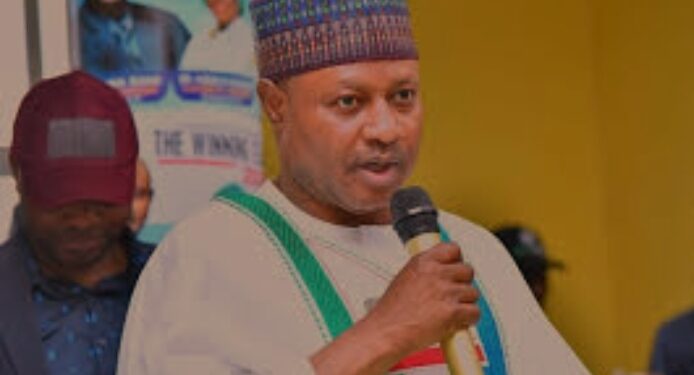Kaduna State Governor, Senator Uba Sani, has taken decisive action to accelerate infrastructure projects in Kafanchan, issuing a six-week ultimatum to contractors working on the Ungwan Rimi-Kafanchan township road in Jema’a Local Government Area (LGA).
This directive comes amidst delays in the completion of key road projects initiated under former Governor Nasir El-Rufai’s administration as part of the Kafanchan City Urban Renewal Project.
The Project, launched in 2020 under El-Rufai’s administration, aimed to transform the town’s infrastructure.
The programme included the reconstruction and expansion of 26.3 kilometres of roads, with an allocated budget of N12.8 billion.
In January 2022, three of the planned 21 road projects were inaugurated by then-President Muhammadu Buhari.
Despite the initial progress, the pace of subsequent projects has been slow, leaving residents and local authorities frustrated, which prompted Honourable Peter Tanko Dogara, Executive Chairman of Jema’a LGA, to advocate for state intervention.
Recognising the urgency of the situation, Governor Sani mandated that contractors accelerate their efforts and complete the Kafanchan township road within six weeks.
The ultimatum was conveyed by Abdullahi Baba Ahmed, Managing Director of the Kaduna State Road Agency (KADRA), during an inspection tour of ongoing projects in Southern Kaduna.
Honourable Peter Tanko Dogara has expressed his gratitude for the governor’s proactive approach, he acknowledged that his persistent efforts to highlight the project delays had finally paid off, bringing hope to the people of Jema’a LGA.
“It is a relief for our people, who have long been waiting for tangible progress on these roads. We appreciate the governor’s commitment to ensuring the completion of this crucial project,” Dogara remarked.
The renewed activity on the roads has sparked optimism among residents, who view these developments as a step toward improved connectivity and economic growth in the region.











